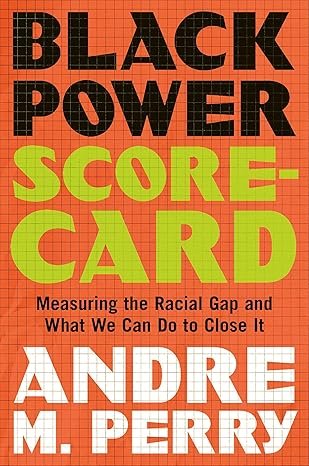 Image 1 of
Image 1 of

Black Balled - The Black Vote and US Democracy 2017
An incisive reflection on black electoral politics, disenfranchisement, and the lasting legacy of the civil rights movement—now with a brand-new essay on the Covid-19 pandemic, reparations, and the 2020 George Floyd protests.
Blackballed is Darryl Pinckney’s meditation on a century and a half of participation by blacks in US electoral politics. In this combination of memoir, historical narrative, and contemporary political and social analysis, he investigates the struggle for black voting rights from Reconstruction through the civil rights movement to Barack Obama’s two presidential campaigns. Drawing on the work of scholars, the memoirs of civil rights workers, and the speeches and writings of black leaders like Martin Luther King and Stokely Carmichael, Andrew Young and John Lewis, Pinckney traces the disagreements among blacks about the best strategies for achieving equality in American society as well as the ways in which they gradually came to create the Democratic voting bloc that contributed to the election of the first black president.
Interspersed through the narrative are Pinckney’s own memories of growing up during the civil rights era and the reactions of his parents to the changes taking place in American society. He concludes with an examination of ongoing efforts by Republicans to suppress the black vote, with particular attention to the Supreme Court’s recent decision striking down part of the Voting Rights Act of 1965.
Also included here is Pinckney’s essay “What Black Means Now,” on the history of the black middle class, stereotypes about blacks and crime, and contemporary debates about “post-blackness,” as well as a new essay, “Buck Moon in Harlem,” which reflects on Juneteenth and the ongoing fight for racial justice, and offers a glimpse of New York City amid the Covid-19 pandemic and the protests following the killing of George Floyd.
An incisive reflection on black electoral politics, disenfranchisement, and the lasting legacy of the civil rights movement—now with a brand-new essay on the Covid-19 pandemic, reparations, and the 2020 George Floyd protests.
Blackballed is Darryl Pinckney’s meditation on a century and a half of participation by blacks in US electoral politics. In this combination of memoir, historical narrative, and contemporary political and social analysis, he investigates the struggle for black voting rights from Reconstruction through the civil rights movement to Barack Obama’s two presidential campaigns. Drawing on the work of scholars, the memoirs of civil rights workers, and the speeches and writings of black leaders like Martin Luther King and Stokely Carmichael, Andrew Young and John Lewis, Pinckney traces the disagreements among blacks about the best strategies for achieving equality in American society as well as the ways in which they gradually came to create the Democratic voting bloc that contributed to the election of the first black president.
Interspersed through the narrative are Pinckney’s own memories of growing up during the civil rights era and the reactions of his parents to the changes taking place in American society. He concludes with an examination of ongoing efforts by Republicans to suppress the black vote, with particular attention to the Supreme Court’s recent decision striking down part of the Voting Rights Act of 1965.
Also included here is Pinckney’s essay “What Black Means Now,” on the history of the black middle class, stereotypes about blacks and crime, and contemporary debates about “post-blackness,” as well as a new essay, “Buck Moon in Harlem,” which reflects on Juneteenth and the ongoing fight for racial justice, and offers a glimpse of New York City amid the Covid-19 pandemic and the protests following the killing of George Floyd.
An incisive reflection on black electoral politics, disenfranchisement, and the lasting legacy of the civil rights movement—now with a brand-new essay on the Covid-19 pandemic, reparations, and the 2020 George Floyd protests.
Blackballed is Darryl Pinckney’s meditation on a century and a half of participation by blacks in US electoral politics. In this combination of memoir, historical narrative, and contemporary political and social analysis, he investigates the struggle for black voting rights from Reconstruction through the civil rights movement to Barack Obama’s two presidential campaigns. Drawing on the work of scholars, the memoirs of civil rights workers, and the speeches and writings of black leaders like Martin Luther King and Stokely Carmichael, Andrew Young and John Lewis, Pinckney traces the disagreements among blacks about the best strategies for achieving equality in American society as well as the ways in which they gradually came to create the Democratic voting bloc that contributed to the election of the first black president.
Interspersed through the narrative are Pinckney’s own memories of growing up during the civil rights era and the reactions of his parents to the changes taking place in American society. He concludes with an examination of ongoing efforts by Republicans to suppress the black vote, with particular attention to the Supreme Court’s recent decision striking down part of the Voting Rights Act of 1965.
Also included here is Pinckney’s essay “What Black Means Now,” on the history of the black middle class, stereotypes about blacks and crime, and contemporary debates about “post-blackness,” as well as a new essay, “Buck Moon in Harlem,” which reflects on Juneteenth and the ongoing fight for racial justice, and offers a glimpse of New York City amid the Covid-19 pandemic and the protests following the killing of George Floyd.
Publication Date: October 1, 2020
ISBN-10 : 1681375591
ISBN-13 : 978-1681375595
Author: Darryl Pinckney
Publisher: New York Review Books
Pages: 144




